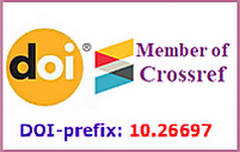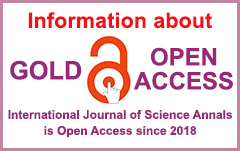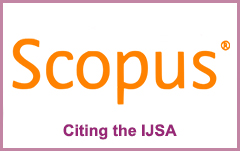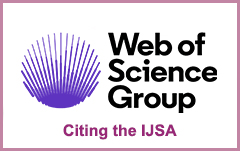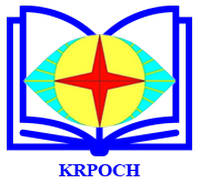Melnyk Yu. B. 1,2, Pypenko I. S. 1,2
| 1 Kharkiv Regional Public Organization “Culture of Health”, Ukraine |
| 2 Scientific Research Institute KRPOCH, Ukraine |
Abstract
Background and Aim of Study: The use of artificial intelligence and various chatbots based on it is becoming part of everyday higher education practice. The aim of the study: to explore practices and identify trends in the use of artificial intelligence-based chatbots by higher education stakeholders.
Material and Methods: The survey was conducted between January and April 2024. The total number of respondents from 57 countries was 788, of whom 363 were students and 425 were university faculty. The probability sampling method was applied. Respondents were interviewed online. The questionnaire is available on the official website of the Scientific Research Institute KRPOCH using Google Forms, as well as on social networks Facebook, LinkedIn, etc. for potential participants. In addition, a selective individual online interview was conducted with respondents. Cronbach’s alpha confirmed adequate internal consistency (α=0.837).
Results: The role of artificial intelligence-based chatbots in higher education practice was considered. The use of chatbots among higher education stakeholders (students and faculty) was studied. A model of stakeholder behaviour was developed. This model describes two ways of solving problems: with and without the use of artificial intelligence. Trends in the use of chatbots in higher education were identified: students were 26.9% more likely than faculty to use artificial intelligence-based chatbots to prepare for classes or complete assignments at their college/university; almost all students (68.0% of 68.3% who use chatbots) edited the results returned by generative chatbots at their request; students were 30.1% more likely than faculty to edit these results.
Conclusions: The new technologies of generative artificial intelligence have been the factors that have revolutionised the industry of higher education. A new “Human-AI” system has emerged that is fundamentally changing the rules for training young professionals. The study emphasizes that higher education stakeholders using chatbots should do so correctly, consider the possibilities and limitations of using this toolkit, and recognize their responsibility for the outcomes and consequences of their use.
Keywords
education, artificial intelligence, chatbots, Human-AI system, interaction, responsibility, stakeholder
References
Aithal, P. S., & Maiya, A. K. (2023). Innovations in higher education industry – Shaping the future. International Journal of Case Studies in Business, IT, and Education (IJCSBE), 7(4), 294–322. https://doi.org/10.47992/IJCSBE.2581.6942.0321
Alexander, B., Ashford-Rowe, K., Barajas-Murphy, N., Dobbin, G., Knott, J., McCormack, M., Pomerantz, J., Seilhamer, R., & Weber, N. (2019). EDUCAUSE Horizon Report: 2019 Higher Education Edition. EDUCAUSE. https://library.educause.edu/-/media/files/library/2019/4/2019horizonreport.pdf
AlGerafi, M. A., Zhou, Y., Alfadda, H., & Wijaya, T. T. (2023). Understanding the factors influencing higher education students’ intention to adopt artificial intelligence-based robots. IEEE Access, 11, 99752–99764. https://doi.org/10.1109/ACCESS.2023.3314499
Al Husseiny, F. (2023). Artificial intelligence in higher education: A new horizon. In S. Kaddoura (Ed.), Handbook of Research on AI Methods and Applications in Computer Engineering (pp. 295–315). IGI Global. https://doi.org/10.4018/978-1-6684-6937-8.ch014
Alqahtani, T., Badreldin, H. A., Alrashed, M., Alshaya, A. I., Alghamdi, S. S., bin Saleh, K., Alowais, S. A., Alshaya, O. A., Rahman, I., Al Yami, M. S., & Albekairy, A. M. (2023). The emergent role of artificial intelligence, natural learning processing, and large language models in higher education and research. Research in Social and Administrative Pharmacy, 19(8), 1236–1242. https://doi.org/10.1016/j.sapharm.2023.05.016
Bartolic, S. K., Boud, D., Agapito, J., Verpoorten, D., Williams, S., Lutze-Mann, L., Matzat, U., Moreno, M. M., Polly, P., Tai, J., Marsh, H. L., Lin, L., Burgess, J.-L., Habtu, S., Rodrigo, M. M. M., Roth, M., Heap, T., & Guppy, N. (2022). A multi-institutional assessment of changes in higher education teaching and learning in the face of COVID-19. Educational Review, 74(3), 517–533. https://doi.org/10.1080/00131911.2021.1955830
Bearman, M., Ryan, J., & Ajjawi, R. (2023). Discourses of artificial intelligence in higher education: A critical literature review. Higher Education, 86(2), 369–385. https://doi.org/10.1007/s10734-022-00937-2
Becker, S. A., Brown, M., Dahlstrom, E., Davis, A., De Paul, K., V., & Pomerantz, J. (2018). NMC Horizon Report: 2018 Higher Education Edition. EDUCAUSE. https://library.educause.edu/~/media/files/library/2018/8/2018horizonreport.pdf
Bonnefon, J. F., Rahwan, I., & Shariff, A. (2024). The moral psychology of Artificial Intelligence. Annual Review of Psychology, 75, 653–675. https://doi.org/10.1146/annurev-psych-030123-113559
Civaner, M. M., Uncu, Y., Bulut, F., Chalil, E. G., & Tatli, A. (2022). Artificial intelligence in medical education: a cross-sectional needs assessment. BMC Medical Education, 22, Article 772. https://doi.org/10.1186/s12909-022-03852-3
Chedrawi, C., & Howayeck, P. (2019). Artificial intelligence a disruptive innovation in higher education accreditation programs: Expert systems and AACSB. In Y. Baghdadi, & A. Harfouche. (Eds.), ICT for a Better Life and a Better World: Vol. 30. Lecture Notes in Information Systems and Organisation. (pp. 115–129). Springer. https://doi.org/10.1007/978-3-030-10737-6_8
Chu, H.-C., Hwang, G.-H., Tu, Y.-F., & Yang, K.-H. (2022). Roles and research trends of artificial intelligence in higher education: A systematic review of the top 50 most-cited articles. Australasian Journal of Educational Technology, 38(3), 22–42. https://doi.org/10.14742/ajet.7526
Crompton, H., & Burke, D. (2023). Artificial intelligence in higher education: The state of the field. International Journal of Educational Technology in Higher Education, 20, Article 22. https://doi.org/10.1186/s41239-023-00392-8
Dieguez, T., Loureiro, P., & Ferreira, I. (2021). Entrepreneurship and leadership in higher education to develop the needed 21st Century skills. In F. Bezzina (Ed.), Proceedings of the 17th European Conference on Management, Leadership and Governance (pp. 143–151). Academic Conferences International Limited. https://www.scopus.com/inward/record.uri?eid=2-s2.0-85122925043&partnerID=40&md5=65810f73e090f33037e2729a253b6adf
Doroudi, S. (2023). The intertwined histories of artificial intelligence and education. Journal of Artificial Intelligence in Education, 33(4), 885–928. https://doi.org/10.1007/s40593-022-00313-2
Habeeb Ur Rahiman & Rashmi Kodikal (2024). Revolutionizing education: Artificial intelligence empowered learning in higher education. Cogent Education, 11(1), Article 2293431. https://doi.org/10.1080/2331186X.2023.2293431
Hu, K. (2023, February 2). ChatGPT sets record for fastest-growing user base – Analyst note. Reuters. https://www.reuters.com/technology/chatgpt-sets-record-fastest-growing-user-base-analyst-note-2023-02-01
Melnyk, Yu. B., & Pypenko, I. S. (2023). The legitimacy of artificial intelligence and the role of ChatBots in scientific publications. International Journal of Science Annals, 6(1), 5–10. https://doi.org/10.26697/ijsa.2023.1.1
O’Dea, X., & O’Dea, M. (2023). Is artificial intelligence really the next big thing in learning and teaching in higher education? A conceptual paper. Journal of University Teaching & Learning Practice, 20(5). https://doi.org/10.53761/1.20.5.05
Masters, K. (2019). Artificial intelligence in medical education. Medical Teacher, 41(9), 976–980. https://doi.org/10.1080/0142159X.2019.1595557
Melnyk, Yu. B. (2023). Using of ChatGPT in psychology research and practice. International Journal of Science Annals, 6(2), 5–8. https://doi.org/10.26697/ijsa.2023.2.0
Mishra, R. (2019). Usage of data analytics and artificial intelligence in ensuring quality assurance at higher education institutions. In S. K. Khatri (Ed.), Proceedings of the 2019 Amity International Conference on Artificial Intelligence (pp. 1022–1025). IEEE. https://doi.org/10.1109/AICAI.2019.8701392
Moscardini, A. O., Strachan, R., & Vlasova, T. (2022). The role of universities in modern society. Studies in Higher Education, 47(4), 812–830. https://doi.org/10.1080/03075079.2020.1807493
Pypenko, I. S. (2019). Digital product: The essence of the concept and scopes. International Journal of Education and Science, 2(4), 56. https://doi.org/10.26697/ijes.2019.4.41
Pypenko, I. S. (2023). Human and artificial intelligence interaction. International Journal of Science Annals, 6(2), 54–56. https://doi.org/10.26697/ijsa.2023.2.7
Pypenko, I. S., Maslov, Yu. V., & Melnyk, Yu. B. (2020). The impact of social distancing measures on higher education stakeholders. International Journal of Science Annals, 3(2), 9–14. https://doi.org/10.26697/ijsa.2020.2.2
Pypenko, I. S., & Melnyk, Yu. B. (2021). Principles of digitalisation of the state economy. International Journal of Education and Science, 4(1), 42–50. https://doi.org/10.26697/ijes.2021.1.5
Rof, A., Bikfalvi, A., & Marques, P. (2022). Pandemic-accelerated digital transformation of a born digital higher education institution towards a customized multimode learning strategy. Educational Technology & Society, 25(1), 124–141. https://www.jstor.org/stable/48647035
Shenkoya, T., & Kim, E. (2023). Sustainability in higher education: digital transformation of the fourth industrial revolution and its impact on open knowledge. Sustainability, 15(3), Article 2473. https://doi.org/10.3390/su15032473
Shrivastava, R. (2023). Role of artificial intelligence in future of education. International Journal of Professional Business Review, 8(1), e0840. https://doi.org/10.26668/businessreview/2023.v8i1.840
Melnyk Yuriy Borysovych (Corresponding Author) – https://orcid.org/0000-0002-8527-4638;
Pypenko Iryna Sergiivna – https://orcid.org/0000-0001-5083-540X; Doctor of Philosophy in Economics, Affiliated Associate Professor, Secretary of Board, Kharkiv Regional Public Organization “Culture of Health”; Co-Director, Scientific Research Institute KRPOCH, Ukraine.
| |
APA
Melnyk, Yu. B., & Pypenko, I. S. (2024). Artificial intelligence as a factor revolutionizing higher education. International Journal of Science Annals, 7(1), 8–16. https://doi.org/10.26697/ijsa.2024.1.2
Harvard
Melnyk, Yu. B., & Pypenko, I. S. 2024. "Artificial intelligence as a factor revolutionizing higher education". International Journal of Science Annals, [online] 7(1), pp. 8–16. viewed 30 June 2024, https://culturehealth.org/ijsa_archive/ijsa.2024.1.2.pdfVancouver
Melnyk Yu. B., & Pypenko I. S. Artificial intelligence as a factor revolutionizing higher education. International Journal of Science Annals [Internet]. 2024 [cited 30 June 2024]; 7(1): 8–16. Available from: https://culturehealth.org/ijsa_archive/ijsa.2024.1.2.pdf https://doi.org/10.26697/ijsa.2024.1.2







